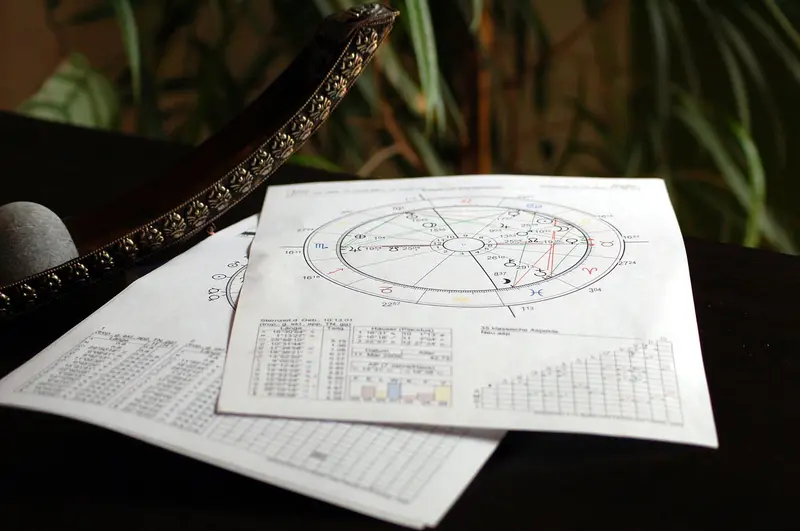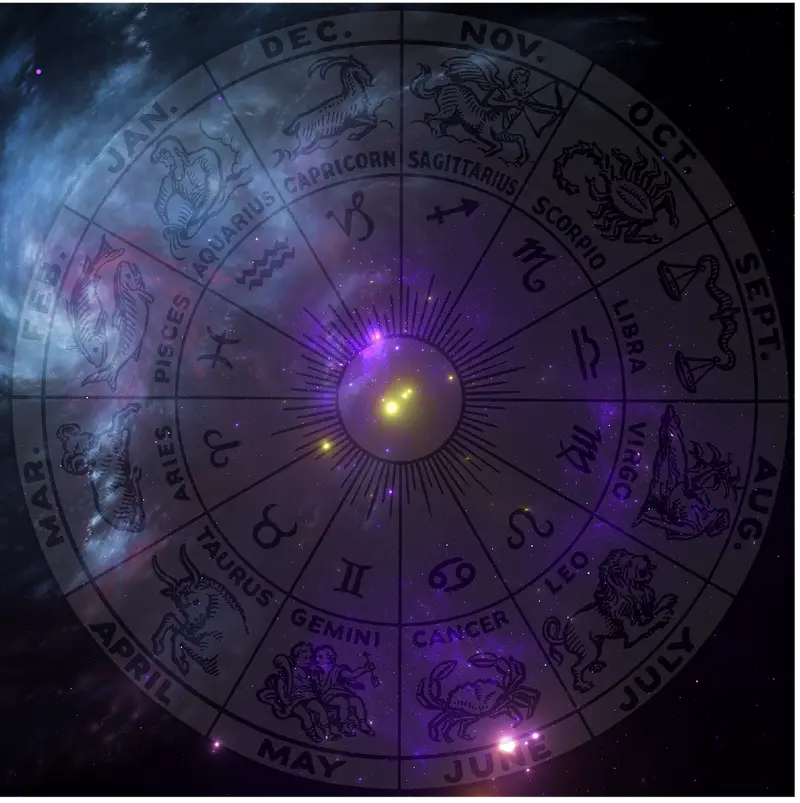152 astrologers The teams led by Mr. Greenberg, who participated in the experiment, were correct only 20 percent of the time and often disagreed with each other. So if you are one of the millions of people who turn to horoscopes to learn about your future, the researchers have bad news for you.
Astrology supporters claim that the movement of stars and planets can influence a person’s life and even predict it. But if this were true, astrologers could predict the position of the stars at the moment of a person’s birth simply by having information about that person. However, the responses of participating astrologers to questions in a test dedicated to this topic were no more accurate than random guessing.
What did mathematician Greenberg learn?
Many modern astrologers claim that the birth chart or natal chart (The tool that records the position of celestial bodies at the moment of a person’s birth) can be used to predict personality traits and future life.
To put astrology to a rigorous test, mathematician Spencer Greenberg teamed up with the American social enterprise Clearer Thinking. In his social media post, Mr. Greenberg noted: “One of the most fundamental claims of astrology is that a person’s natal chart contains information about their life and character. If this is true, then astrologers should be able to accurately create a person’s chart at a speed that significantly exceeds that of random guessing.”
A mathematician consulted with six astrologers to determine what specific information about a person’s life they needed to know in order to create their natal chart. Using this information, the researchers created a questionnaire and selected 12 responses that formed the basis of the test, writes Daily Mail Then, 152 participating astrologers were provided with information about an unknown person. They were asked which of the five possible birth charts could belong to her. Mr. Greenberg claimed that his team aimed to conduct an objective study. If astrology works, it is likely to be beneficial to her.

Scientists promised a cash prize of 1,000 US dollars to the astrologer who could correctly answer 11 out of 12 questions.
When the astrologers completed the test, over 50 percent of them were confident that they had answered most of the questions correctly. However, on average, they provided only 2.49 correct answers out of 12 possible: such a result could be expected if they were guessing randomly.
In general, no participant was able to answer more than five questions correctly.
Astrologers were also asked to rate their experience on a scale ranging from “I have little experience” to “I am a world-class expert.” However, while more experienced astrologers anticipated that their predictions would come true more often, no statistically significant difference was observed among the participants.
Moreover, on average, those who considered themselves world-class experts showed results that were even slightly worse than those who modestly reported a lack of experience.
The authors of the study consider it particularly important that the participants in the experiment demonstrated a very low level of agreement among themselves.
Astrologers rarely expressed a unanimous opinion on any issue. Even the most experienced group gave the same answers only 28 percent of the time. According to Mr. Greenberg, if all participants were responding randomly, one would expect them to agree 20 percent of the time.
“For me, it was truly amazing. It shows that” astrology “Perhaps less standardized than one might think,” he added.

People usually think that astrology is an innocent pastime that hardly deserves such intense study. However, Mr. Greenberg argues that this topic is just as worthy of examination as any other.
In his opinion, “if astrology works, it requires a revolution in our scientific understanding of how the universe functions, as modern physics does not provide a mechanism that could explain astrology.”
On the other hand, as the researcher noted, if astrology doesn’t work at all, it’s very important to know this, as millions of people believe in it. Therefore, if it “fails,” they would be better off looking for other sources of information, believes Spencer Greenberg.
The results of the study were published by the journal New Scientist.
By the way, in 2022, experts estimated the annual volume of the global mystical services industry, which includes astrology, Tarot cards, and palmistry, at 2.2 billion US dollars.
